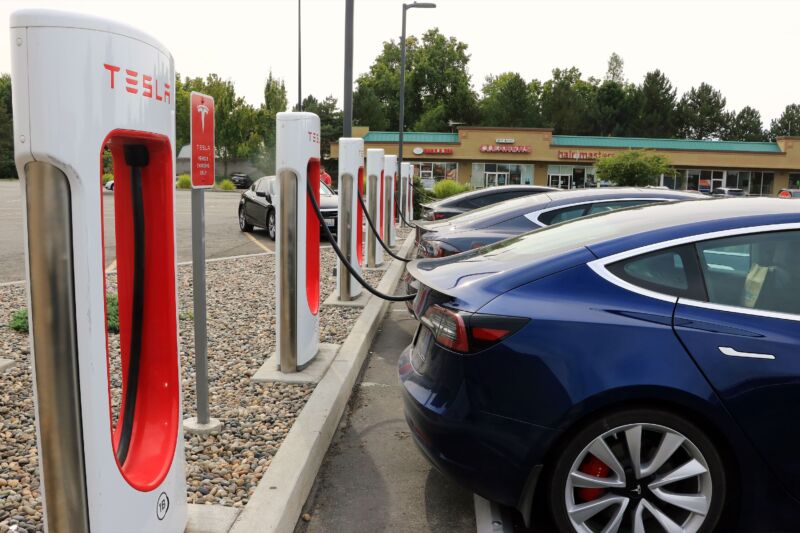

Calculating the positive impact of electric car adoption
source link: https://arstechnica.com/cars/2022/07/how-many-lives-have-electric-cars-saved-from-climate-change/
Go to the source link to view the article. You can view the picture content, updated content and better typesetting reading experience. If the link is broken, please click the button below to view the snapshot at that time.
EVs are good —
Calculating the positive impact of electric car adoption
We calculate that 2 million EVs equates to 20,000 fewer deaths from climate change.
Ben Hause - 7/6/2022, 5:43 PM

These days Tesla gets a lot of flak, but sometimes it does great things. In 2008, it launched the Tesla Roadster—the first serial production lithium-ion battery car. Unlike previous electric cars, the Roadster was fast, sexy, and luxurious. Since its release, more than 12 million electric cars have been sold worldwide, with Tesla contributing over 1 million to that number.
But what if Tesla never existed or never sparked the electric car revolution—would we have millions of electric cars on the road today? Of course, the electric car revolution would have happened eventually. But it was only two years before the Roadster's release that the death of the electric car was being lamented in the infamous documentary Who Killed the Electric Car? If the big automakers really did kill the electric car, as the documentary suggests, then Tesla surely revived it.
That's great news for Earth's future inhabitants. Taking action to reduce the harms of climate change, by buying an electric car, for instance, is an urgent matter. Just last year, a study from Nature Communications estimated that "adding 4,434 metric tons of carbon dioxide in 2020—equivalent to the lifetime emissions of 3.5 average Americans—causes one excess death globally in expectation between 2020-2100."
That is to say, carbon emitted now causes deaths later—83 million, according to that study's baseline projections. Thus, the proliferation of electric cars today saves lives tomorrow. But how many?
To find out, I looked at Tesla's most recent impact report. According to that report, the average combustion car's all-things-considered lifetime amount of emissions is 450 g CO2e/mile, or 68 metric tons in total throughout a 150,000-mile (241,401-km) lifespan. By contrast, the Model 3's total emissions are 180 g CO2e/mile when charged on the grid in America, which equates to a lifetime emissions amount of 27 metric tons of carbon. For each person who gives up their gas guzzler to drive an electric car, we get a lifetime carbon savings of about 40 metric tons. (The savings are even higher if you charge your car with solar panels.) So, to figure out how many lives electric cars have saved, we need to estimate how many electric vehicles have been bought instead of gas cars.
AdvertisementTo date, Tesla has sold about 2 million cars. That translates to a savings of 80 million metric tons of carbon, assuming that most of those people would have bought another gas car had the electric car revolution been delayed. Given that every 4,000 metric tons of carbon emitted is expected to cause one additional death (per the study quoted above), that yields about 20,000 lives saved.
That's a lot, but I've only included Tesla cars; if we include the 10 million electric cars sold by other manufacturers, the lives saved jumps to a whopping 120,000.
To be clear, that's a rough estimate, and simplifying assumptions have been made. But it is likely an underestimate. That's because the Nature Communications study only counts deaths from overheating (e.g., heat stroke). But climate change will also kill in other ways. It will drown people, starve them, and infect them with novel diseases. Taking those deaths into account, the proliferation of electric vehicles will save even more lives.
We've still only considered mortality. But most of the damage done by climate change isn't from killing people. It's from destroying their property and making their lives worse. If we take that into account, too, it looks like electric cars really have prevented a lot of harm.
Recommend
About Joyk
Aggregate valuable and interesting links.
Joyk means Joy of geeK